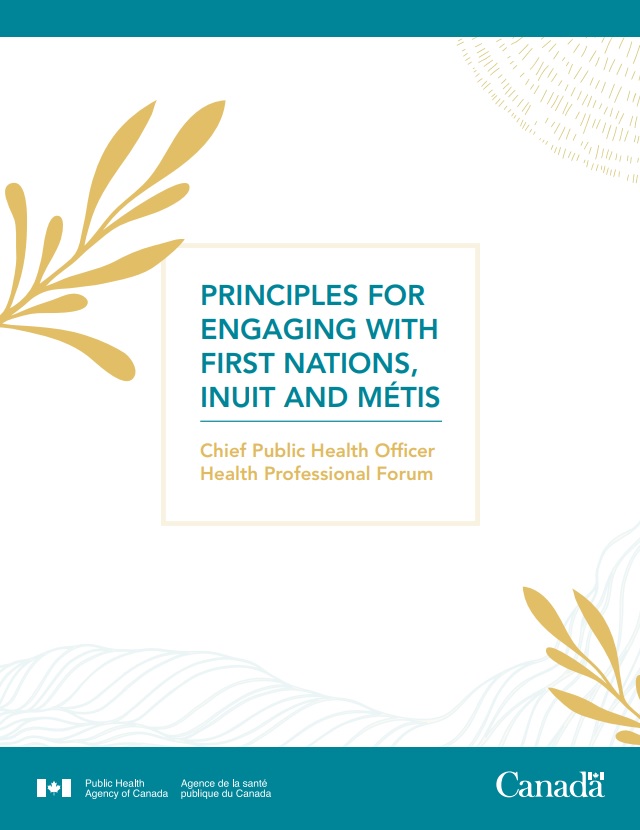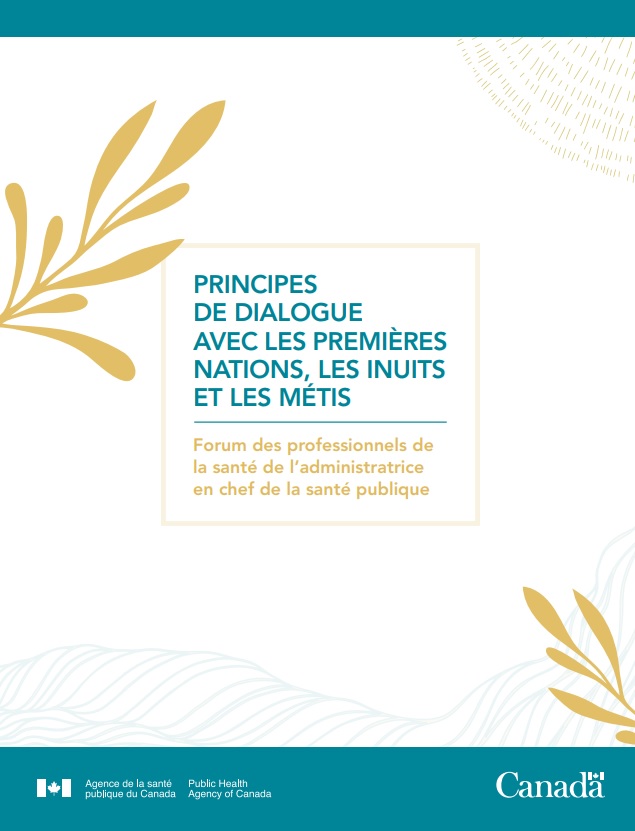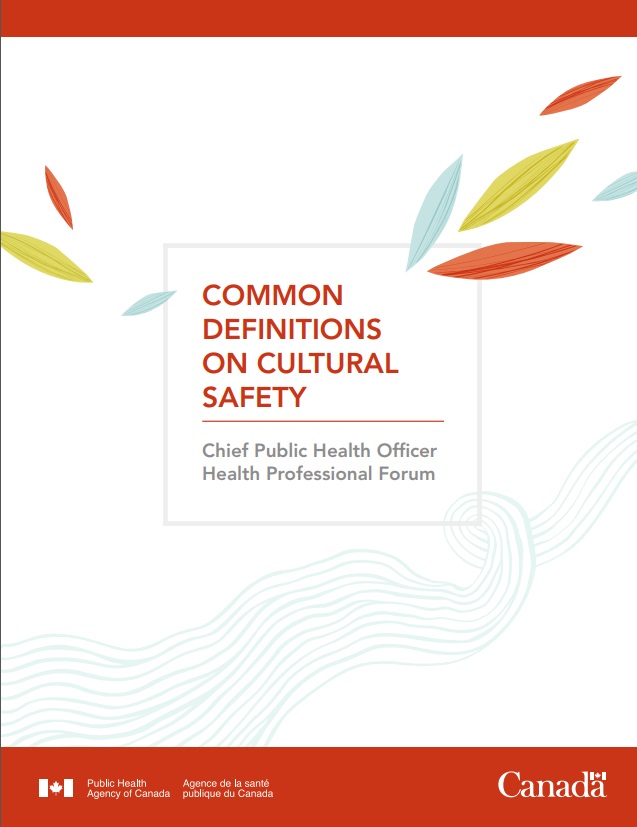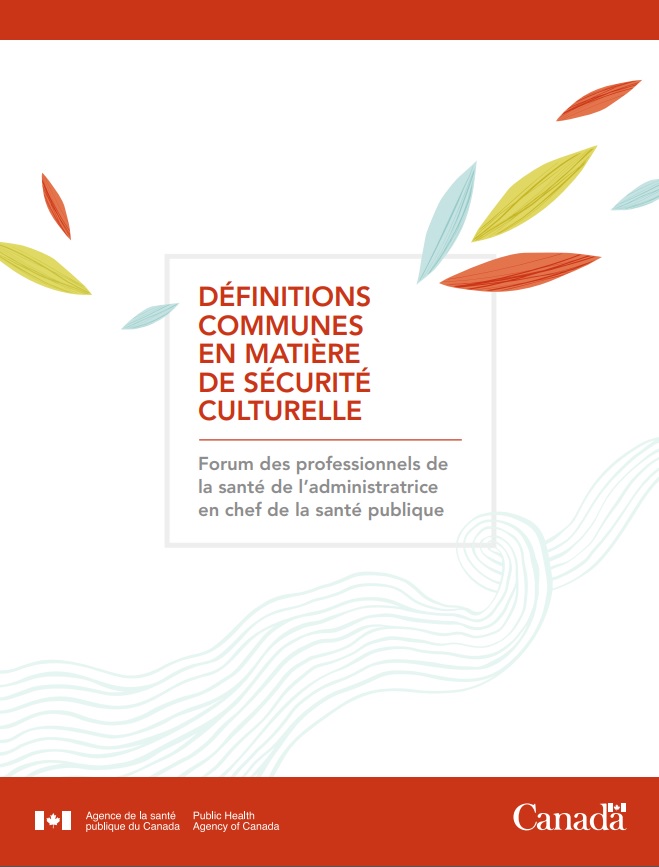This webpage is intended to provide a collection of resources that have particular relevance to Indigenous peoples. This is in acknowledgement that FASD among Indigenous peoples is the result of a unique set of historical and ongoing colonial systems, policies and practices. We also acknowledge that many Indigenous peoples have led efforts to resist these colonial circumstances, and to push back against deficit-focused narratives. This webpage is intended to highlight resources that provide examples of culturally safe practice, uplift Indigenous-guided work, and foster understandings that begin to address the structural health inequities that impact Indigenous peoples and communities.
-

5 Things to Know about: Level 4 FASD Prevention
This info sheet describes how Level 4 FASD Prevention involves continued support after childbirth, wrapping care around the mother-child unit.
-

2025 Letter for Jordan's Principle Funding
Template letter for Jordan's Principle funding for Canada FASD Conference.
-

FASD Prevalence in Special Populations
Based on the most current research, the estimated prevalence of fetal alcohol spectrum disorder (FASD) in the general North American population is at least 8%. However, rates of FASD are believed to be higher in certain groups. Examining the varying rates of FASD across different groups is critical to understand the demographic, social, geographical, and cultural factors that underlie alcohol consumption during pregnancy, and which groups may benefit from additional or tailored support to promote healthy outcomes.
The purpose of this issue paper is to take a closer look at the research on special groups thought to experience higher rates of FASD, including children in care, individuals involved in the criminal legal system, and Indigenous communities.
-
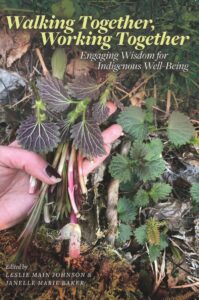
Health and Healing on the Edges of Canada
Dorothy Badry is a professor in the Faculty of Social Work at the University of Calgary, and Annie Goose is an Inuvialuit Elder, language expert, and craftsperson from Ulukhaktok, NT. They collaborated on the Brightening Our Home Fires project to address women's health and FASD prevention, which took place in four communities in the Northwest Territories, including Yellowknife, Łutselkʼe, Behchokǫ̀, and Ulukhaktok (2011-2012), using the Photovoice methodology described below. The chapter included here is based on their collaborative research project report and was revised for inclusion in Walking Together, Working Together. -
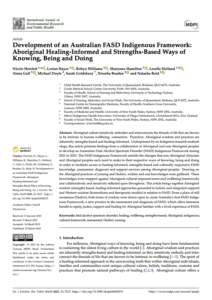
Development of an Australian FASD Indigenous Framework: Aboriginal Healing-Informed and Strengths-Based Ways of Knowing, Being and Doing
Aboriginal culture intuitively embodies and interconnects the threads of life that are known to be intrinsic to human wellbeing: connection. Therefore, Aboriginal wisdom and practices are inherently strengths-based and healing-informed. Underpinned by an Indigenist research methodology, this article presents findings from a collaboration of Aboriginal and non-Aboriginal peoples to develop an Australian Fetal Alcohol Spectrum Disorder (FASD) Indigenous Framework during 2021 to 2023. The FASD Indigenous Framework unfolds the changes that non-Aboriginal clinicians and Aboriginal peoples each need to make in their respective ways of knowing, being and doing in order to facilitate access to healing-informed, strengths-based and culturally responsive FASD knowledge, assessment, diagnosis and support services among Aboriginal peoples. Drawing on the Aboriginal practices of yarning and Dadirri, written and oral knowledges were gathered. These knowledges were mapped against Aboriginal cultural responsiveness and wellbeing frameworks and collaboratively and iteratively reflected upon throughout. This article brings together Aboriginal wisdom (strengths-based, healing-informed approaches grounded in holistic and integrated support) and Western wisdom (biomedicine and therapeutic models) in relation to FASD. From a place of still awareness (Dadirri), both forms of wisdom were drawn upon to create Australia’s first FASD Indigenous Framework, a new practice in the assessment and diagnosis of FASD, which offers immense benefit to equity, justice, support and healing for Aboriginal families with a lived experience of FASD.
-
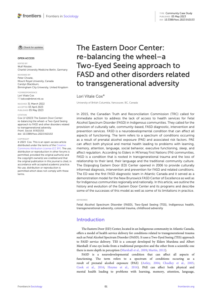
The Eastern Door Center: re-balancing the wheel–a Two-Eyed Seeing approach to FASD and other disorders related to transgenerational adversity
The Eastern Door (ED) Center, located in an Indigenous community in Atlantic Canada, offers a model of health service delivery for conditions related to transgenerational trauma such as Fetal Alcohol Spectrum Disorder (FASD). It uses a Two-Eyed Seeing (TES) approach to FASD service delivery. TES is a concept developed by Elders Murdena and Albert Marshall: if one eye looks from a traditional perspective and the other from a scientific one there is more depth in perception.
‘Strong Born‘ is a communications campaign designed to raise awareness of Fetal Alcohol Spectrum Disorder (FASD) and the harms of drinking alcohol while pregnant and breastfeeding, among Aboriginal and Torres Strait Islander communities across Australia. The campaign has been developed by the National Aboriginal Community Controlled Health Organisation (NACCHO) in collaboration with the National FASD Campaign Working Group which includes multi-disciplinary staff from ACCHOs and ACCOs, and cultural and clinical FASD experts and researchers.


